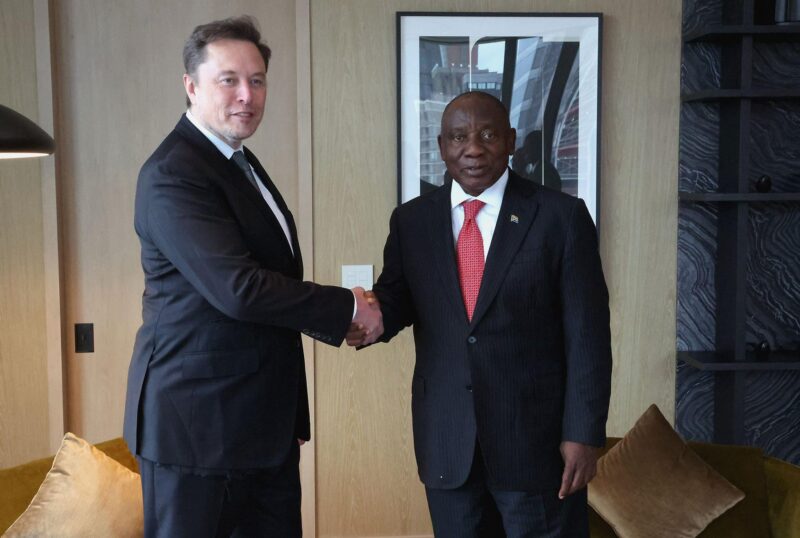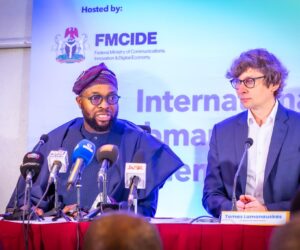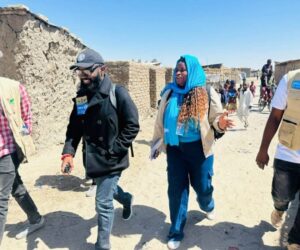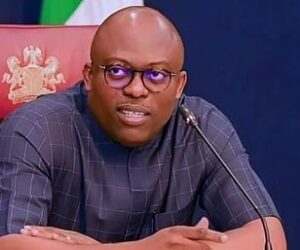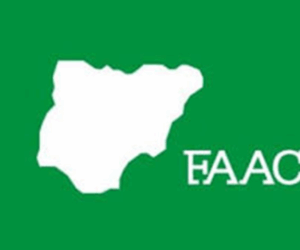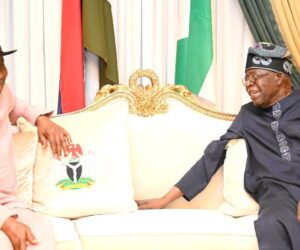Elon Musk’s SpaceX is urging South Africa to revise its strict Black ownership regulations. These rules require telecom companies to have at least 30% ownership by historically disadvantaged groups (HDGs).
The policy, rooted in South Africa’s Black Economic Empowerment (BEE) initiative, aims to address inequalities from the apartheid era. However, Starlink argues that the requirements are overly restrictive and hinder its ability to bring satellite internet to the country.
Starlink’s satellite internet service could revolutionise connectivity in South Africa, especially in rural areas. The country’s vast geography and uneven infrastructure make traditional broadband deployment challenging. Starlink’s network of over 5,000 satellites offers high-speed internet access without the need for extensive ground infrastructure.
Yet, the company has been unable to secure a licence to operate in the country due to the BEE ownership mandate. SpaceX acknowledges the importance of BEE policies but calls for a more flexible approach.

The company, in a statement, expressed support for Broad-Based Black Economic Empowerment but criticised the “overly restrictive” 30% ownership rule for telecom license holders.
Instead, SpaceX proposes alternatives, such as equity-equivalent investments, which could include providing free internet to schools or public institutions.
South Africa’s Black economic empowerment policy
South Africa’s BEE policy, introduced nearly three decades ago, seeks to redress economic disparities created by apartheid. It mandates that companies in certain industries, including telecommunications, allocate significant ownership to Black South Africans or other historically disadvantaged groups.
The policy has been instrumental in fostering economic inclusion, but has faced criticism for creating barriers to entry for global firms. For Starlink, compliance with the 30% ownership rule has posed a significant challenge.
The company’s global structure makes it difficult to meet local ownership requirements without altering its corporate framework. This has sparked a broader debate about balancing economic redress with the need to attract cutting-edge technology and investment.
The push for regulatory change comes amid heightened tensions between South Africa and the United States. U.S. President Donald Trump has threatened to cut funding to South Africa over a controversial land expropriation law.
Elon Musk, once a close ally of Trump and head of the U.S. Department of Government Efficiency, has also criticised South Africa’s policies, claiming they promote “white genocide”. These comments have strained diplomatic relations between both countries, adding complexity to Starlink’s negotiations.


South African President Cyril Ramaphosa has engaged directly with Musk to address these tensions.
Reports indicate that the government is considering workarounds to allow Starlink to operate without fully complying with BEE rules. One proposed solution involves “equity equivalent” contributions, such as community development projects, instead of direct ownership transfers.
These discussions have gained urgency as South Africa seeks to maintain strong ties with the U.S. while boosting its pro-business image.
Starlink’s potential impact in South Africa
Starlink’s entry into South Africa could transform internet access across the continent’s most industrialised nation. Rural communities, in particular, stand to benefit from affordable, high-speed connectivity. In neighbouring Zimbabwe, Starlink has already demonstrated its potential, delivering reliable internet to remote areas and spurring economic activity.
However, the company’s push for regulatory reform has sparked controversy. Critics, including the Economic Freedom Fighters (EFF), argue that bending BEE rules for Starlink undermines South Africa’s commitment to economic justice.
EFF leader Julius Malema has accused Musk of seeking to “undermine the economic and political sovereignty of South Africa.”
Starlink’s challenge in South Africa reflects broader issues faced by global tech companies operating in emerging markets. Regulatory hurdles, while designed to promote local interests, can deter investment and delay the deployment of transformative technologies. South Africa’s government is keen to attract foreign investment to bolster its economy, but any concessions to Starlink could set a precedent for other industries.


The South African government has signalled openness to compromise. Discussions between Musk and Ramaphosa began as early as September 2024 during the United Nations General Assembly. Since then, officials from the telecommunications and trade ministries have explored options to accommodate Starlink while upholding the spirit of BEE.
The outcome of ongoing discussions will likely shape Starlink’s ability to operate in South Africa. If successful, the company could unlock new opportunities for connectivity, education, and economic growth in underserved regions. However, failure to reach an agreement could delay these benefits and escalate tensions with global partners.
South Africa’s decision will also have political ramifications. The government must navigate domestic criticism while maintaining its commitment to economic transformation. For now, Starlink remains optimistic, emphasising its willingness to collaborate with regulators to find a mutually beneficial solution.

